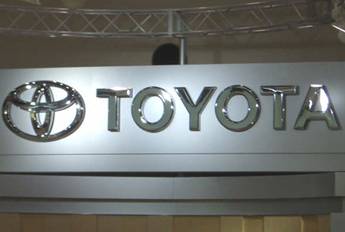Operations management and quality
In operations management or manufacturing, quality is more concerned with excellence and the production of goods free from defects, deficiencies, and significant variations, achieved by conformity with design specifications and measured against objective and industry standards to satisfy customer or user requirements.

The International Standards Organisation (ISO) defines quality in the manufacturing context as:
"the totality of features and characteristics of a product or service that bears its ability to satisfy stated or implied needs."

Toyota
 In the mid-1940s many Japanese manufacturers, most notably Toyota, listened to their ideas of US theorists, such as W.E. Deming, and began to re-think and re-develop their basic approach to quality, transferring from the traditional approach focused on controlling the quality of the final product to a much broader quality assurance approach, which examined all the systems in an organisation.
In the mid-1940s many Japanese manufacturers, most notably Toyota, listened to their ideas of US theorists, such as W.E. Deming, and began to re-think and re-develop their basic approach to quality, transferring from the traditional approach focused on controlling the quality of the final product to a much broader quality assurance approach, which examined all the systems in an organisation.
Toyota's ferocious pursuit of quality led to the development of a management philosophy, the 'Toyota Way', which is still central to its current business approach and underpinned its global success. The Toyota Way incorporates the Toyota Production System and evolved from 'Lean Manufacturing' and 'Just-in-time Production' processes, which the company was instrumental in developing. The Toyota Way emphasises problem-solving, teamwork, adding value by training staff and focusing on root causes or underlying problems in order to increase quality and efficiency and reduce costs.
Toyota summarises its values in these five principles:
- Challenge
- Kaizen (continuous improvement)
- Genchi Genbutsu (go and see)
- Respect
- Teamwork
